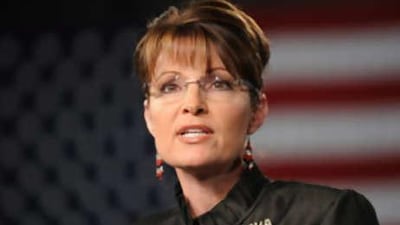WASHINGTON // If you want to know what is happening in the US presidential race, read the polls: John McCain is up by 10. He is up by 5. He is down by 1. The race is tied. And that is just in the past several days. Such is the perplexing world of pre-election public opinion surveys, offered up by news organisations from CNN to USA Today almost as often as Barack Obama and now his rival, Mr McCain, invoke the word "change". There are polls on favourability, who can handle the economy or Iraq better, who is more trustworthy and, of course, the old standard: which candidate is ahead.
But all of them come with a caveat, or should: beware. "You can pick any two polls you want, or any five polls you want, and tell any story you want of what is going on in this election," said Mark Mellman, a Democratic pollster in Washington. Except, perhaps, the story of what will actually happen on Election Day. Those who follow public opinion research say this year could be the trickiest yet for pollsters to get it right. Already there have been some noticeable misses; pollsters across the board predicted victory for Mr Obama in the New Hampshire primary, which Hillary Clinton won.
This year's presidential election features a few firsts for which pollsters have no model for predicting voter behaviour: Mr Obama is the first black major-party nominee and Sarah Palin, the Alaska governor, is the first female No 2 on a Republican ticket. Along with how race and gender might play, also at issue is how to accurately forecast which voters will turn out. Young, first-time voters - who historically have not shown up in large numbers but did so during the primaries - and African-Americans could change the outcome of the race.
Even with its rigorous sampling methods and weighting models, polling is not merely a science, leaving plenty of room for error, especially in a year with so many complicating factors. Response rates to polls, normally done by random dialling of home telephone numbers, are down in general, which could skew results; even the fact that many people now have only mobile service has changed the game. "There's a lot of art to it," said Richard A Kulka, president of the American Association for Public Opinion Research. Of pollsters' work, he added: "There are certainly reasons to believe that life is more complicated, and will be, in the current election. And of course we won't know that until the results are in."
Pollsters invariably say they are not prognosticators; rather, they provide a "snapshot" of the way things stand at a given point in time. Still, everyone wants to know: who will win? Mr Kulka's group is studying how and why pollsters were so far off in New Hampshire; hypotheses have ranged from underestimating the number of undecided voters, to a latent racism in an overwhelmingly white electorate, to a last-minute swing toward Mrs Clinton after she turned tearful in a candid moment on the campaign trail.
David W Moore spent 13 years as a top editor and executive at the Gallup Organization, one of the most respected names in US polling. His time there led him to this conclusion: pollsters do not just capture public opinion, at times they actually create it. In his book The Opinion Makers: An Insider Exposes the Truth Behind the Polls, he argues that polls are not a very accurate reflection of what the public really thinks.
"We're more interested in creating a public opinion that is plausible and that is useful for enhancing news stories," said Mr Moore, a senior fellow at the University of New Hampshire's Carsey Institute who writes a blog called "Sceptical Pollster". Mr Moore cites as an example what he calls the "myth" of widespread public support for the 2003 invasion of Iraq. Polling before the invasion generally showed US residents backed it by a margin of 2 to 1. But, according to Mr Moore, that was in large part because the question was often framed in language that referred to the removal of Saddam Hussein. In an experimental follow-up, using different questions, Mr Moore found that solid support for the invasion was closer to 30 per cent, which he suggests could have had a profound effect on public policy.
Mr Moore said pollsters often ask questions of a public not engaged enough in policy issues to answer them, and pressure people to choose a particular candidate - at least for the survey's purposes - even when they are unsure who they will ultimately support. And two different pollsters can poll on the same topic and essentially get opposite results. "You know you can manipulate results of opinion polls if you ask the question in a different way," he said. "You can't create anything you want, but there's a wide latitude to the responses you can get."
There is little doubt the contest between Mr Obama and Mr McCain has tightened in the past month. But the post-convention bounce the Republican enjoyed in the polls has been generally treated with some scepticism, as most candidates tend to get one that, over time, fades away. George F Bishop, a University of Cincinnati political scientist and author of The Illusion of Public Opinion: Fact and Artefact in Public Opinion Polls, says that, historically, pollsters have been fairly accurate, at least if you judge them by their final polls before election day (pollsters are treated much like weathermen: when they get the forecast right, they get none of the credit, and when they get it wrong, they receive all of the blame).
Still, Mr Bishop says not to pay too much attention to any single poll. Election Day is still worlds away. "Regard it as just a lot of noise, a lot of volatile noise," he said. "Don't take it seriously - yet." eniedowski@thenational.ae

